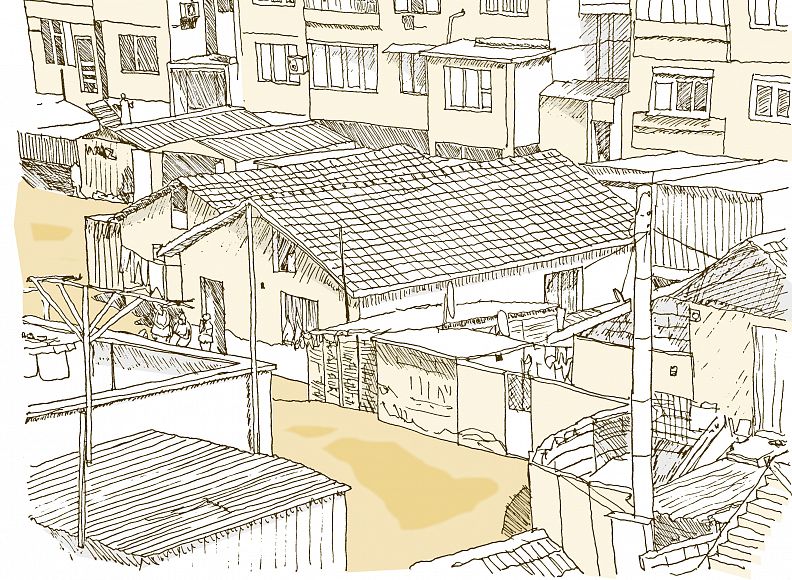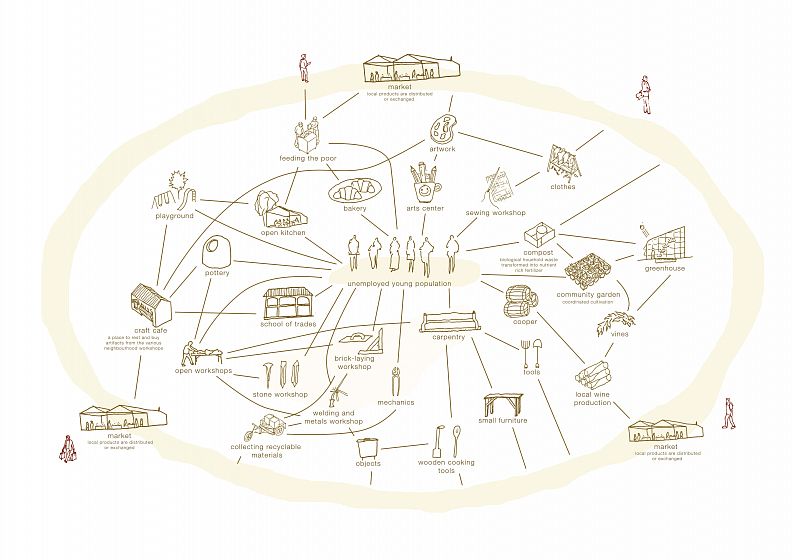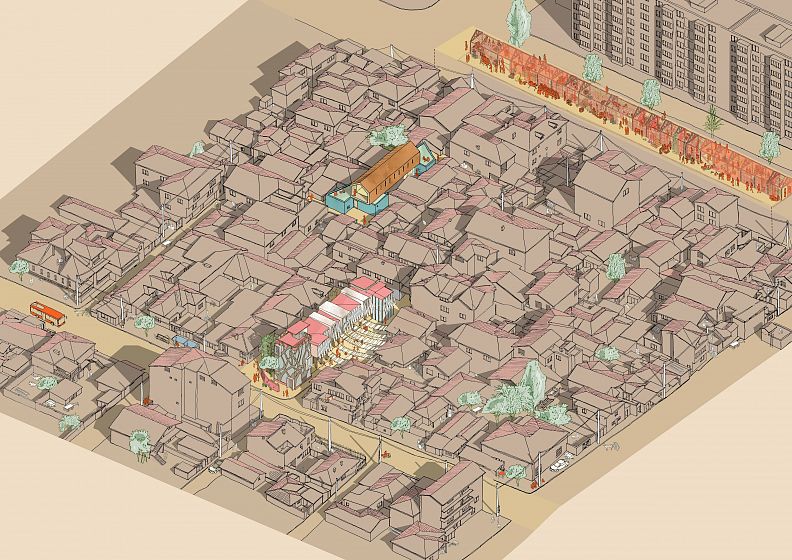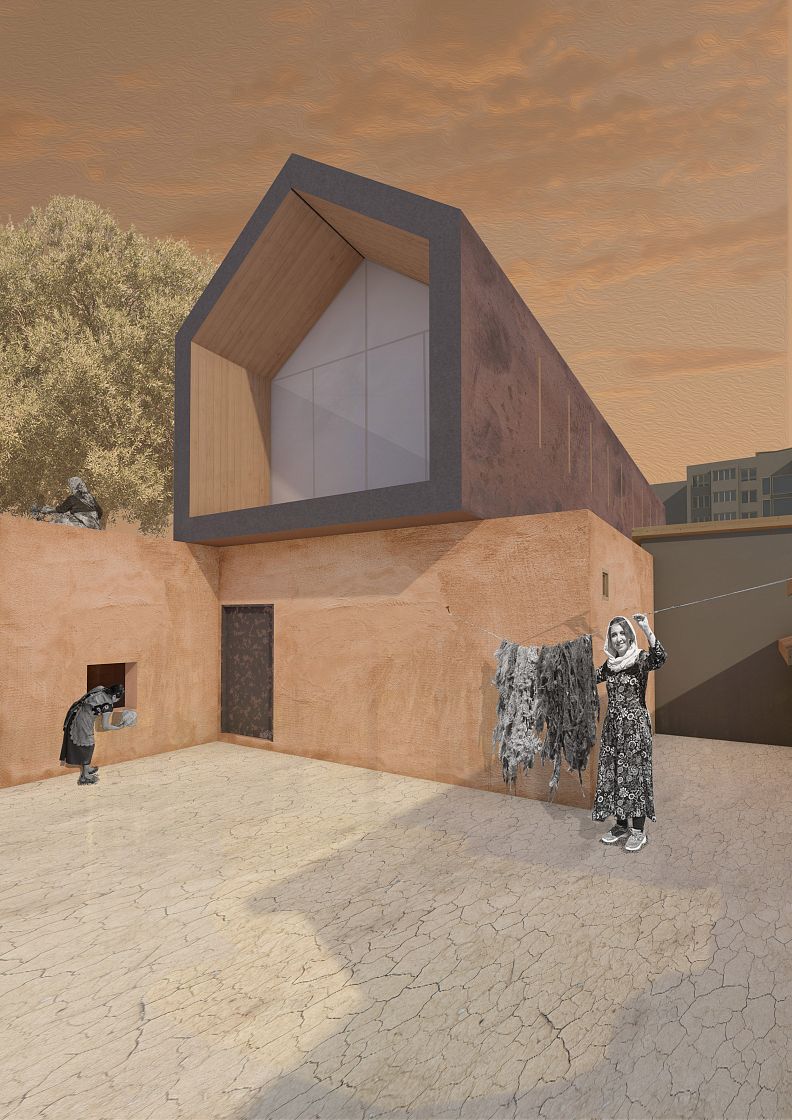Networks of Mutual Assistance - Stolipinovo

Project idea
Stolipinovo is one of the largest Roma neighbourhoos in Europe with a population of 40,000 people. It is located in the second largest city in Bulgaria (and also my hometown) – Plovdiv. It can safely be described as third-world, poverty stricken, rampant with disease, heavily polluted, and somewhat shocking. The living conditions of ethnic minorities in Bulgaria is a highly controversial subject. Currently, there is no blueprint, neither on local nor national level, on dealing with the social segregation of Roma communities.
The project focuses on adopting a network of small cooperative spaces throughout Stolipinovo that will create educational, entrepreneurial, and employment outcomes. As a strategy that can be adopted over the next 20 years, the initial scope of the proposal is the starting point of the network as a masterplan. It combines the marketplace that currently exists in the neighborhood and two shared community centers. The number of those centers will increase over time as shared and co-produced spaces thanks to the generated income through the public market.
Project description
This project presents a strategy of creating nodes of activity throughout
the communities of Stolipinovo. Firstly, the spots where action seems to
concentrate itself were identified. This makes each spot functioning as
a ‘node‘ in the network of paths. These nodes will later become shared
and co-produced community space. They will all relate to one operative
public space - the market.
The initial steps of starting this network were further investigated, which
resulted in the formulation of a masterplan consisting of two community
spaces, a bus route, and the marketplace. All these masterplan elements
function together and form a basis for expansion. It was important to
target young people first, since the overall development strategy is set
to be adopted over the next 20 years. The young people who will be
trained in the school will be the main ‘vehicle‘ for the strategy to take
place successfully. By learning different trades and getting education
simultaneously, they will be free to choose their path after graduating
from the training center. Essential will be the quality of this institution
to separate itself from the rest and bring true development of the
community.
Education has become extremely undervalued in this area, because
of the poor quality of the local educational system. It will be hard to
restore the faith in education overnight. Therefore, the school will offer
additional benefits for its students to stimulate parents to send their
children there. These extra benefits include a communal kitchen that
will offer the students free food and free clothes produced in the other
community building - the women’s sewing workshop.
The workshop itself will empower women by fully restoring the common
practice of producing yarn from raw wool. This process is still ongoing
within households, mainly located in small villages around Plovdiv.
However, the hand-made products from this type of yarn are becoming
more and more popular in the city and organising this activity as a
separate business model has lots of potential.
Technical information
Summary of the masteplan area:
- 11,300 sqm
- 174 structures
- 119 houses and structures
- avg. house = 1.5 families average family = 2 parents +3 children +1 senior = 6 people
- between 900 and 1000 residents
- density of 0.08 people per 1 sqm
- a person occupies an area of
12.5 sqm









